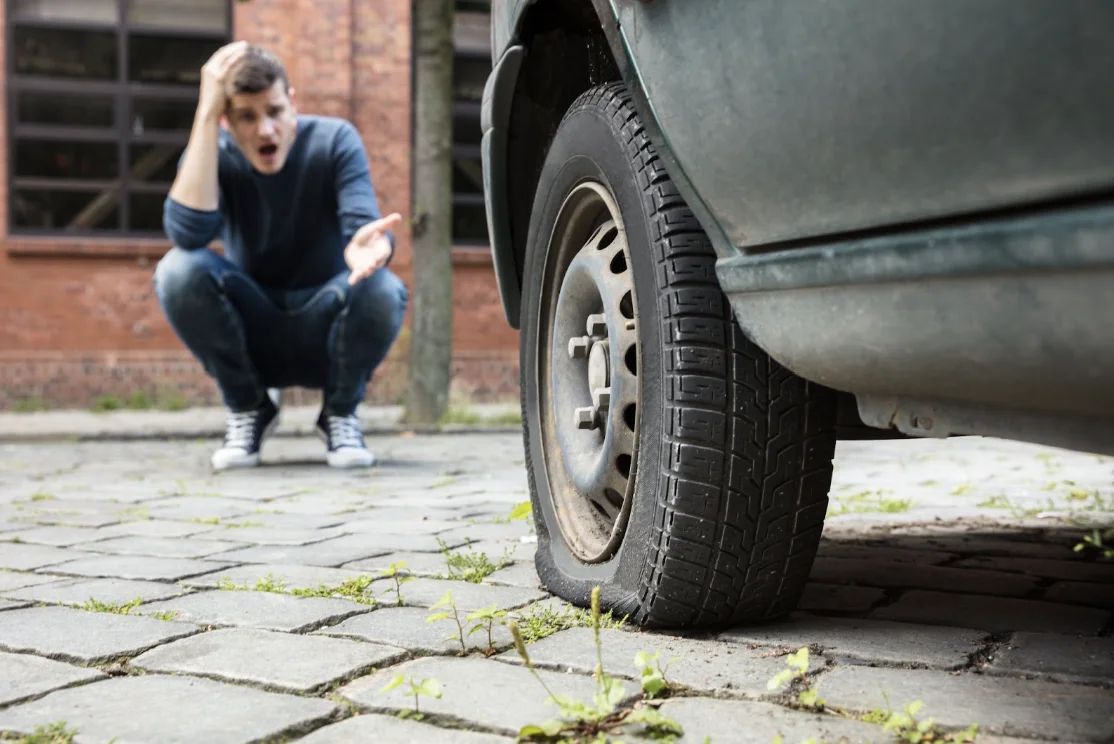Tire damage is a common concern for many drivers when it comes to maintaining a car. Whether it’s a puncture from a sharp object on the road, wear from constant use, or damage from an unexpected incident, the question of whether car insurance covers tire damage is prevalent.
This article explains which parts of your car insurance might help with tire damage, what isn’t covered, and other ways to protect your tires.
Types of Coverage for Tire Damage
Car insurance policies vary, but regarding tire damage, two main types of coverage can provide protection: comprehensive and collision coverage.
-
Comprehensive Coverage
This part of your insurance helps if something unexpected damages your tires, like bad weather or someone deliberately damaging them. It helps pay for fixing or replacing your tires in many situations that don’t involve a crash.
For example, should your tires be damaged by a hailstorm or deliberately slashed by a vandal, comprehensive coverage generally steps in to handle the expenses for their repair or replacement.
-
Collision Coverage
This coverage helps if a crash damages your tires. Whether you hit another car or something else, this part helps pay for your tires to be fixed or replaced.
Although both types of coverage provide protection for tire damage, it’s important to recognize that this applies solely to damage from incidents that are covered. Regular wear and tear on tires, like the slow loss of tread, is not covered by auto insurance.
Limitations of Car Insurance for Tire Damage
Standard auto insurance policies do not cover tire wear and tear. This type of damage is considered part of the routine maintenance a car owner is responsible for. However, many manufacturer warranties may cover tire defects or premature wear, offering some relief outside of insurance.
Optional Coverages for Additional Protection
For drivers seeking more comprehensive protection for their tires, there are options beyond standard insurance policies:
-
Tire Protection Plans
Some places that sell tires offer special plans that help pay for fixing or replacing your tires if they get damaged from things like nails on the road. These plans differ depending on where you buy them, so looking at a few options is good. Given the variation in coverage limits and terms, it’s recommended to compare different plans to assess their cost-effectiveness and the extent of protection offered.
-
Custom Parts and Equipment Coverage (CPE)
For those with custom wheels or rims, CPE offers an added layer of protection. This insurance option covers repairing or replacing custom parts not installed by the original manufacturer. If you put special wheels on your car, insurance can help pay for these if they get damaged. This would be good if the carmaker did not put on your special wheels.
Conclusion
Knowing what your car insurance does and doesn’t cover regarding tire damage is important. While insurance can help in some situations, it only covers some things. Looking into extra protection for your tires, like tire protection plans or custom parts coverage, can give you more peace of mind.
By familiarizing yourself with the details of your insurance policy and exploring additional coverage options, you can ensure that you’re fully prepared for any tire-related mishaps that may occur.
FAQs
How does filing a claim for tire damage affect my insurance rates?
Filing a claim for tire damage could potentially affect your insurance rates, especially if there’s a pattern of frequent claims. However, the impact varies by insurance company and individual policy.
Is there a deductible for tire damage claims?
Yes, if your tire damage is covered under comprehensive or collision insurance, you’ll likely have to pay a deductible before your insurance covers the rest. The amount depends on your policy.
Will using roadside assistance for a flat tire affect my insurance premium?
Generally, using roadside assistance for a flat tire won’t directly affect your insurance premium. However, frequent use of roadside services might prompt your insurer to adjust your rates.
How quickly should I report tire damage to my insurance?
You should report tire damage as soon as possible, ideally within a few days of the incident, to ensure the claims process is smooth and efficient.
Get the right coverage for your car with tutenagency
New tutenagency customers?
Quote auto insurance online or call (334) 502-5111 to insure your vehicle.
Legal Disclaimer: ADVERTISING MATERIAL ONLY. Do not rely on this site or this article for legal or financial advice. The information provided on 210agency.com is strictly for educational purposes and to provide you with general educational information. Since state laws and financial regulations are subject to change, please schedule an appointment with an attorney or qualified financial advisor in your area to further discuss your personal situation. This public information is neither intended to, nor will it, create an attorney-client or financial representative relationship.

